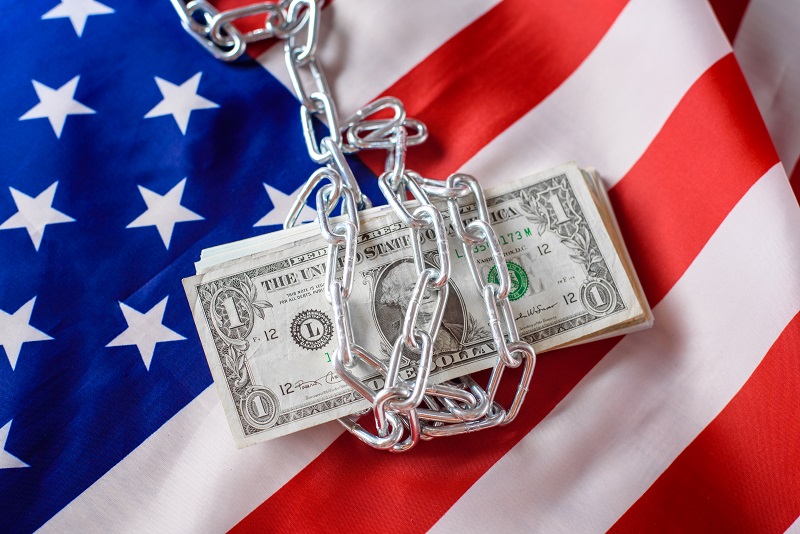Starting a credit repair business in Pennsylvania requires more than just a desire to help individuals improve their credit scores. It demands a thorough understanding of the legal framework that governs the industry.
If you’re considering entering this field, read on to explore the specific laws and regulations you need to adhere to for a smooth and legally compliant business operation.
Obtain Necessary Knowledge and Training

Familiarize yourself with the credit repair process, federal and state laws, and industry best practices. It’s essential to understand the Fair Credit Reporting Act (FCRA), the Credit Repair Organizations Act (CROA), and Pennsylvania’s specific credit repair regulations.
Under Pennsylvania law, credit repair businesses are considered “credit services organizations” and are subject to the Credit Services Act (CSA), which is set forth in Title 73, Chapter 22 of the Pennsylvania Consolidated Statutes.
The CSA requires credit services organizations to register with the Pennsylvania Department of Banking and Securities and to comply with certain requirements, including:
- Providing consumers with a written contract that outlines the services to be provided, the total cost of those services, and the terms of payment.
- Providing consumers with a written statement of their rights under the CSA before entering into a contract.
- Refraining from making false or misleading statements or engaging in other deceptive practices.
- Providing consumers with a full and complete refund if services are not provided as promised.
- Maintaining a surety bond or letter of credit to protect consumers in the event of a breach of contract.
Additionally, credit repair businesses in Pennsylvania must comply with other state and federal laws, such as the Fair Credit Reporting Act and the Pennsylvania Unfair Trade Practices and Consumer Protection Law.
There are several federal laws that regulate the credit repair industry and protect consumers. Here are some of the key federal laws on credit repair:
Fair Credit Reporting Act (FCRA)
The FCRA is a federal law that regulates the collection, distribution, and use of consumer credit information. The law gives consumers the right to access their credit reports and dispute inaccurate or incomplete information.
Credit Repair Organizations Act (CROA):
The CROA is a federal law that regulates credit repair companies and protects consumers from deceptive or fraudulent practices. The law requires credit repair companies to provide consumers with a written contract that outlines the services to be provided and prohibits certain practices, such as charging upfront fees for services.
Truth in Lending Act (TILA):
The TILA is a federal law that requires lenders to disclose the terms and conditions of credit products to consumers. The law requires lenders to provide consumers with a written disclosure of the cost of credit, including the annual percentage rate (APR) and other fees and charges.
Equal Credit Opportunity Act (ECOA):
The ECOA is a federal law that prohibits lenders from discriminating against consumers on the basis of race, color, religion, national origin, sex, marital status, age, or other factors. The law applies to all types of credit, including credit cards, mortgages, and auto loans.
Fair Debt Collection Practices Act (FDCPA):
The FDCPA is a federal law that regulates the activities of debt collectors and protects consumers from abusive, deceptive, and unfair practices. The law prohibits debt collectors from engaging in certain practices, such as making false or misleading statements, using threatening or harassing language, and contacting consumers at inconvenient times.
Surety Bond

A surety bond is a three-party agreement that legally binds your credit repair company (who needs the bond), the state (who requires the bond), and a surety company that sells the bond. If you fail to perform or cause consumers harm, the bond will cover the resulting damages or losses.
The bond should be no less than $5,000 or more than $25,000. Additionally, the bond amount must be adjusted once a year.
Create A Business Plan

Develop a comprehensive business plan that outlines your goals, target market, services offered, marketing strategies, and financial projections.
Creating an effective business plan for a credit repair business in Pennsylvania involves several key steps:
Define Your Target Market:
Determine who your target customers are and what their credit repair needs are. Consider factors such as age, income, credit score, and financial goals. This will help you tailor your services to meet their needs.
Conduct Market Research:
Analyze the local market and competition to identify opportunities and potential challenges. This will help you understand the demand for credit repair services in Pennsylvania and how you can differentiate your business from competitors.
Develop A Marketing Strategy:
Determine how you will reach your target market and promote your credit repair services. Consider using online advertising, social media marketing, direct mail, and other strategies to raise awareness and attract new customers.
Develop Operational Strategies:
Determine how you will operate your credit repair business in Pennsylvania, including staffing, technology, and infrastructure needs. Consider how you will manage customer data and ensure compliance with state and federal regulations.
Establish Financial Projections
Develop financial projections that outline your revenue and expenses for the first few years of operation. Consider factors such as startup costs, ongoing expenses, and potential revenue streams to ensure that your business is financially viable.
Create A Contingency Plan:
Develop a contingency plan to prepare for potential risks and challenges that may arise in the credit repair industry, such as changes in regulations, economic downturns, or competition from other providers.
Overall, an effective business plan for a credit repair business in Pennsylvania should be comprehensive, well-researched, and tailored to the specific needs of your target market. By following these steps and continuously monitoring and adapting your business strategy, you can increase your chances of success in this competitive industry.
Choose A Business Name and Structure

Select a business name and structure (sole proprietorship, partnership, LLC, or corporation). Make sure the chosen name is available and not misleading.
Sole Proprietorship:
This is the simplest and most common business structure for credit repair businesses in Pennsylvania. A sole proprietorship is a business owned and operated by one person, who is personally responsible for the business’s debts and liabilities.
Partnership:
A partnership is a business owned and operated by two or more people who share the profits and losses of the business.
There are two types of partnerships in Pennsylvania:
- General Partnerships and
- Limited Partnerships.
In a general partnership, all partners are personally responsible for the business’s debts and liabilities. In a limited partnership, there is at least one general partner who is personally responsible for the business’s debts and liabilities, and one or more limited partners who are not.
Limited Liability Company (LLC):
An LLC is a flexible business structure that combines the liability protection of a corporation with the tax benefits and operational flexibility of a partnership. In Pennsylvania, an LLC can be owned and operated by one or more individuals, and the owners are generally not personally responsible for the business’s debts and liabilities.
Corporation:
A corporation is a separate legal entity that is owned by shareholders and operated by a board of directors. In Pennsylvania, corporations can be either for-profit or non-profit, and they offer liability protection for the owners and directors.
Choosing a business name for your credit repair business in Pennsylvania is an important decision that can impact your branding, marketing, and legal obligations. Here are some steps to follow to properly choose a business name:
Conduct A Name Search:
Before choosing a name for your credit repair business, conduct a search to make sure that the name is not already in use by another business in Pennsylvania. You can search for business names on the Pennsylvania Department of State’s website.
Choose A Unique Name:
Choose a name that is unique and memorable, and that accurately reflects the services you provide. Avoid using generic or overly descriptive names that may be difficult to differentiate from other credit repair businesses.
Check Trademark Availability
Conduct a trademark search to make sure that your chosen business name is not already trademarked by another business. You can search for trademarks on the U.S. Patent and Trademark Office’s website.
Register Your Business Name:
Once you have chosen a name for your credit repair business, you will need to register it with the Pennsylvania Department of State. This can be done online or by mail, and there may be a fee involved.
Consider Legal Implications:
Before finalizing your business name, consider any legal implications that may be associated with the name. For example, certain words or phrases may be regulated or restricted by state or federal laws, or may be subject to trademark disputes.
Register Your Business

Register your credit repair business with the Pennsylvania Department of State by filing the necessary paperwork and paying the required fees. This may include Articles of Incorporation or Articles of Organization, depending on your chosen business structure.
- Visit the Pennsylvania Department of State’s website.
- Access The Business Section: Click on the “Business” link at the top of the website, which will take you to the Business & Charities section.
- Choose The Appropriate Registration Form: Depending on your chosen business structure (LLC, corporation, etc.), you will need to file the appropriate registration form. For example, if you choose to form an LLC, you will need to file the Certificate of Organization.
- File The Registration Form: You can file the required registration form online through the Pennsylvania Department of State’s online filing system, called PENN File. Alternatively, you can download the required form from the website, complete it, and submit it by mail along with the required fees. The mailing address and instructions will be provided on the form.
- Pay The Required Fees: When submitting your registration form, either online or by mail, you will need to pay the associated filing fees. The fees vary depending on the chosen business structure and other factors. You can find the fee schedule on the Pennsylvania Department of State’s website.
Obtain an Employer Identification Number (EIN)

Apply for an EIN from the Internal Revenue Service (IRS) for tax purposes and to open a business bank account.
You can apply for an Employer Identification Number (EIN) from the Internal Revenue Service (IRS) in several ways:
- Online: The quickest and easiest way to apply for an EIN is online through the IRS website. Go to the IRS EIN Application Page and follow the prompts to complete the application.
- By fax: You can also apply for an EIN by fax. Download Form SS-4 from the IRS website, complete the form, and fax it to the appropriate fax number listed on the form.
- By mail: You can also apply for an EIN by mail. Download Form SS-4 from the IRS website, complete the form, and mail it to the appropriate address listed on the form.
Regardless of the method you choose, you will need to provide certain information when applying for an EIN, including:
- Your legal name or the name of your business entity
- Your mailing address
- Your social security number (if you are a sole proprietor) or your business entity’s tax identification number
- The reason for applying for an EIN (e.g. starting a new business, hiring employees, etc.)
Open A Business Bank Account

Set up a separate bank account for your credit repair business to maintain accurate financial records and separate personal and business expenses.
Here are the steps to follow:
- Choose a Bank: Research different banks and credit unions in Pennsylvania to find one that meets your business’s needs. Consider factors such as fees, services offered, and proximity to your business location.
- Gather Required Documents: You will need to provide certain documents to open a business bank account in Pennsylvania, including.
- Your business’s EIN (Employer Identification Number)
- Your business’s EIN (Employer Identification Number)
- Business registration documents (such as your Articles of Incorporation or LLC Operating Agreement)
- Government-issued identification (such as a driver’s license or passport) for all account signers
- Business registration documents (such as your Articles of Incorporation or LLC Operating Agreement)
- Schedule an Appointment: Contact the bank to schedule an appointment to open a business bank account. Some banks allow you to schedule an appointment online or over the phone.
- Complete The Application: During the appointment, you will need to complete an application for the business bank account. Provide the required documents and any additional information the bank requests.
- Fund The Account: To activate the account, you will need to deposit funds into it. Some banks may require a minimum opening deposit.
- Review Account Details: Once the account is open, review the account details to ensure that they meet your business’s needs. This includes reviewing fees, interest rates, and other terms and conditions.
Check For Local Licensing Requirements

Consult your local government office to determine if you need to obtain any additional licenses or permits to operate your credit repair business in your area.
Credit repair businesses in Pennsylvania may need to obtain a local business license or tax registration, depending on the city or county where the business is located. It’s important to check with local government agencies to determine what specific licenses or registrations may be required.
Obtain Business Insurance

Purchase general liability insurance and other necessary insurance policies to protect your business and meet any legal requirements.
Credit repair businesses in Pennsylvania may need to obtain several types of insurance coverage to protect their business and assets. Some of the key types of insurance that credit repair businesses may need include:
Professional Liability Insurance:
Also known as errors and omissions (E&O) insurance, this type of insurance provides coverage for claims arising from errors or omissions in the credit repair services provided by the business. This coverage can help protect the business from legal claims and financial damages.
General Liability Insurance:
This type of insurance provides coverage for claims of bodily injury or property damage that may occur as a result of the credit repair business’s operations. This coverage can help protect the business from legal claims and financial damages.
Cyber Liability Insurance:
Credit repair businesses that store and handle sensitive customer data may be at risk for cyberattacks and data breaches. Cyber liability insurance provides coverage for losses resulting from data breaches, cyberattacks, and other cyber incidents.
Business Property Insurance:
This type of insurance provides coverage for damage or loss to the credit repair business’s physical property, such as its office, equipment, and furniture.
Workers' Compensation Insurance:
If the credit repair business has employees, it may be required to obtain workers’ compensation insurance, which provides coverage for injuries or illnesses that occur on the job.
Develop Contracts and Agreements

Create credit repair contracts and agreements that comply with Pennsylvania’s credit repair laws and the federal CROA. Consult a legal professional for assistance in drafting these documents.
73 P.S. § 2186 is a section of the Pennsylvania Consolidated Statutes that relates to credit services organizations (CSOs) operating in the state. Specifically, this section sets forth the requirements for contracts between CSOs and consumers who seek credit repair services.
Under § 2186, any contract between a CSO and a consumer must be in writing and must include the following information:
- The full terms and conditions of the credit repair services to be provided, including any guarantees or warranties.
- The total cost of the services, including all fees and charges.
- A statement informing the consumer of their right to cancel the contract within three business days of signing it.
- The CSO’s name, address, and phone number.
- The consumer’s name and address.
In addition to these requirements, § 2186 prohibits CSOs from making certain statements or representations to consumers. For example, CSOs cannot make false or misleading statements about the consumer’s credit history or creditworthiness, or guarantee that they will be able to improve the consumer’s credit score.
Overall, the purpose of § 2186 is to ensure that consumers who seek credit repair services in Pennsylvania are provided with clear and transparent information about the services they will receive and the costs involved. By complying with these requirements, credit services organizations can help protect consumers and avoid legal and financial consequences.

Implement Compliance Procedures
Establish internal procedures to ensure your credit repair business remains compliant with all federal and state regulations. This may include training employees, maintaining accurate records, and regularly reviewing your practices.
Here are some steps to follow to implement compliance procedures:
Understand The Regulations:
Familiarize yourself with the regulations that govern credit repair businesses in Pennsylvania, including the Pennsylvania Credit Services Act and any federal laws or regulations that apply to your business.
Develop Policies and Procedures:
Develop policies and procedures that outline how your business will comply with the regulations. These policies should cover areas such as advertising, contract requirements, dispute resolution, and consumer protection.
Train Employees:
Train your employees on your compliance policies and procedures, and ensure that they understand their role in maintaining compliance.
Monitor and Audit:
Regularly monitor your business operations to ensure that you are complying with the regulations. Conduct internal audits to identify areas where you may need to improve your compliance procedures.
Respond To Complaints And Disputes:
Have a process in place for responding to consumer complaints and disputes, and ensure that you are following the appropriate legal and regulatory procedures.
Document Everything:
Keep detailed records of your compliance efforts, including policies and procedures, training materials, audit results, and complaint responses. This documentation can be valuable in the event of an audit or legal dispute.

Market Your Business
Develop a marketing plan and begin promoting your credit repair services to potential clients. This can involve online marketing, networking, and other promotional activities.
Here are some effective ways to market your business:
Establish An Online Presence:
Develop a professional website and social media profiles for your credit repair business. Make sure your website is optimized for search engines and includes information about your services and contact information.
Leverage Reviews and Referrals:
Encourage satisfied customers to leave reviews on your website and social media profiles. Consider offering referral incentives to customers who refer new clients to your business.
Attend Industry Events:
Attend industry events, such as conferences and trade shows, to network with other professionals in the credit repair industry and promote your services.
Utilize Paid Advertising:
Consider using paid advertising, such as Google Ads or Facebook Ads, to target potential customers who are searching for credit repair services.
Offer Free Resources:
Develop and share free resources, such as eBooks or guides, that provide helpful information about credit repair and financial management. These resources can help establish your business as an authority in the industry and attract potential customers.
Partner with Other Businesses:
Partner with other businesses, such as real estate agents or mortgage brokers, to offer bundled services or referral programs.
Be Transparent:
Be transparent about your services and processes. Provide clear and accurate information to potential customers to build trust and establish a positive reputation.
Ready to start your credit repair business in Pennsylvania?
Make sure you are informed and compliant with the latest state laws.
Click now to learn more.
In conclusion, familiarizing yourself with the laws and regulations governing credit repair businesses in Pennsylvania is vital for your success. By diligently following the legal requirements, maintaining transparency, and providing high-quality services, you can establish a thriving credit repair business that positively impacts the lives of individuals seeking financial empowerment.
Bonus: Now that you have read this article, why not take your new skill and start your own credit business helping others? We have free training that can help you do just that.

